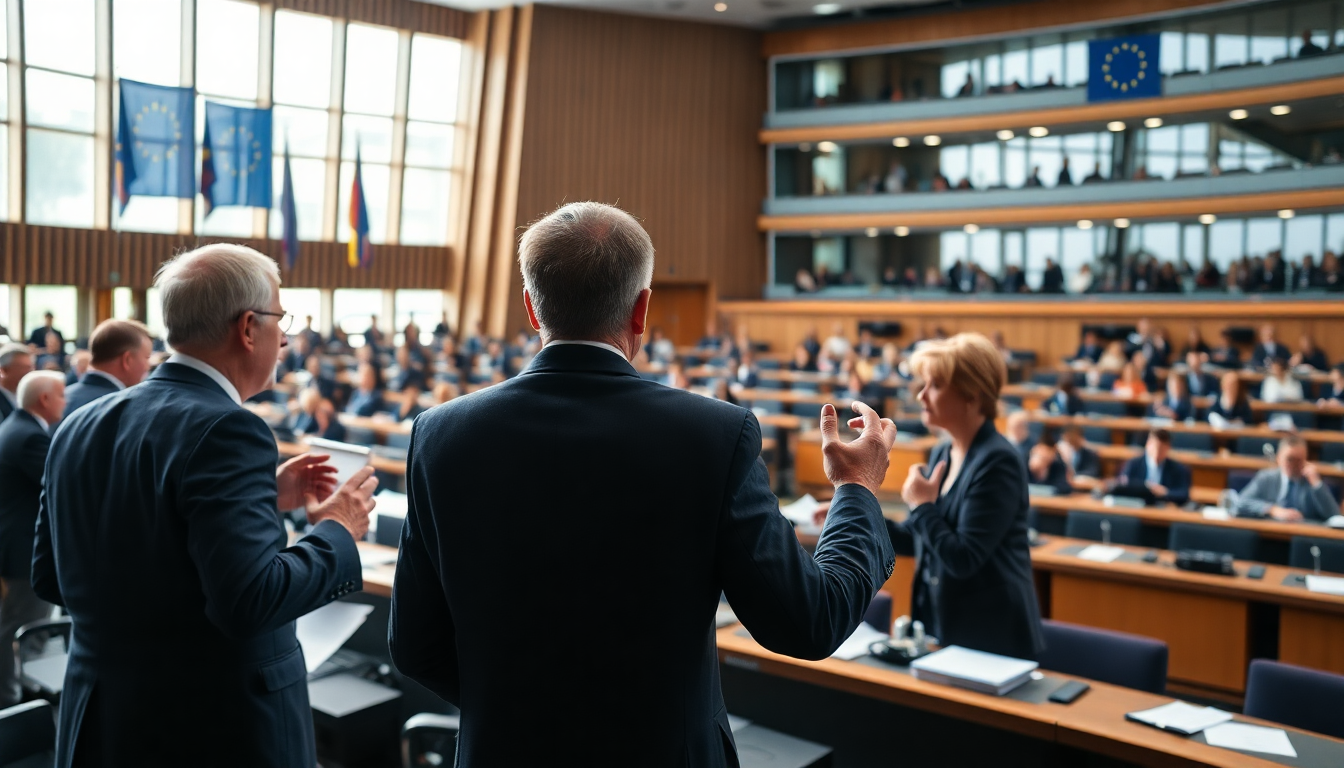Table of Contents
In a surprising twist in European politics, Ursula von der Leyen, the President of the European Commission, is gearing up to face a no-confidence vote in the European Parliament. This is a historic moment—it’s the first time since 2014 that a Commission president has encountered this level of challenge. Why is this happening now? Well, it stems from growing frustrations among lawmakers about her leadership during her second term. Let’s dive into the background of this political shake-up, what led to it, and what it might mean for the future of the European Commission.
The Political Landscape and Background
The no-confidence vote against von der Leyen, set for Thursday, follows a series of controversies that have plagued her first year in office. After a challenging start, her leadership has come under fire, with allegations of mismanagement and a lack of transparency coming to the forefront. The political atmosphere in Brussels is increasingly charged, with various factions voicing their dissatisfaction through this vote.
The motion of censure, put forth by Romanian lawmaker Gheorghe Piperea, is largely fueled by revelations about von der Leyen’s undisclosed communications with Pfizer’s CEO, Albert Bourla, during the pandemic. These communications have raised serious questions about how the Commission handled vaccine procurement and distribution, intensifying calls for accountability. Isn’t it troubling when transparency is lacking in such critical matters?
As the debate heats up, it’s important to grasp the symbolic weight of this vote. While most political groups have indicated they will oppose the motion, simply bringing it forward underscores the existing tensions within the European Parliament and signals a growing demand for more oversight of the Commission’s actions.
The Role of Political Alliances
In the days leading up to the vote, shifting political alliances have become crucial in shaping the outcome. Members of von der Leyen’s own European People’s Party (EPP) and the right-wing European Conservatives and Reformists (ECR) are feeling the pressure from their constituents, prompting some to withdraw support for the motion.
Yet, despite these dynamics, the motion has still managed to gather the necessary 72 signatures, reflecting significant concern among certain lawmakers. The political mainstream seems hesitant to back a move that could destabilize the Commission, preferring to keep things as they are. Spanish officials have highlighted the need for the Commission to adopt a stronger stance against rising authoritarianism in Hungary, adding another layer of complexity to von der Leyen’s situation.
This political maneuvering reveals the intricate web of alliances and rivalries within the European Parliament, where every decision is influenced by a mix of political calculations and the ongoing need for coalition-building. Isn’t it fascinating how interconnected these political relationships can be?
Implications for the European Commission
The implications of this no-confidence vote are significant and could reach far beyond immediate political drama. If the motion succeeds, it would lead to the resignation of the entire Commission and kick off a lengthy process to appoint new commissioners from each of the 27 EU member states. This scenario would not only disrupt ongoing initiatives but could also send shockwaves through the European political landscape.
On the flip side, if the no-confidence motion fails, von der Leyen may walk away with a renewed mandate, albeit under intense scrutiny. The ongoing challenges to her authority might compel her to adopt a more conciliatory approach, especially in addressing the concerns raised by her critics. The delicate balance of power within the European Parliament will remain fragile, making von der Leyen’s ability to navigate this landscape crucial for her administration’s future.
In summary, the situation surrounding Ursula von der Leyen’s leadership is a textbook example of the complexities and challenges of European governance. As we approach the vote, all eyes will be on the European Parliament, waiting to see how this pivotal moment will redefine the Commission’s path and shape the future of European politics. What do you think will happen next?


